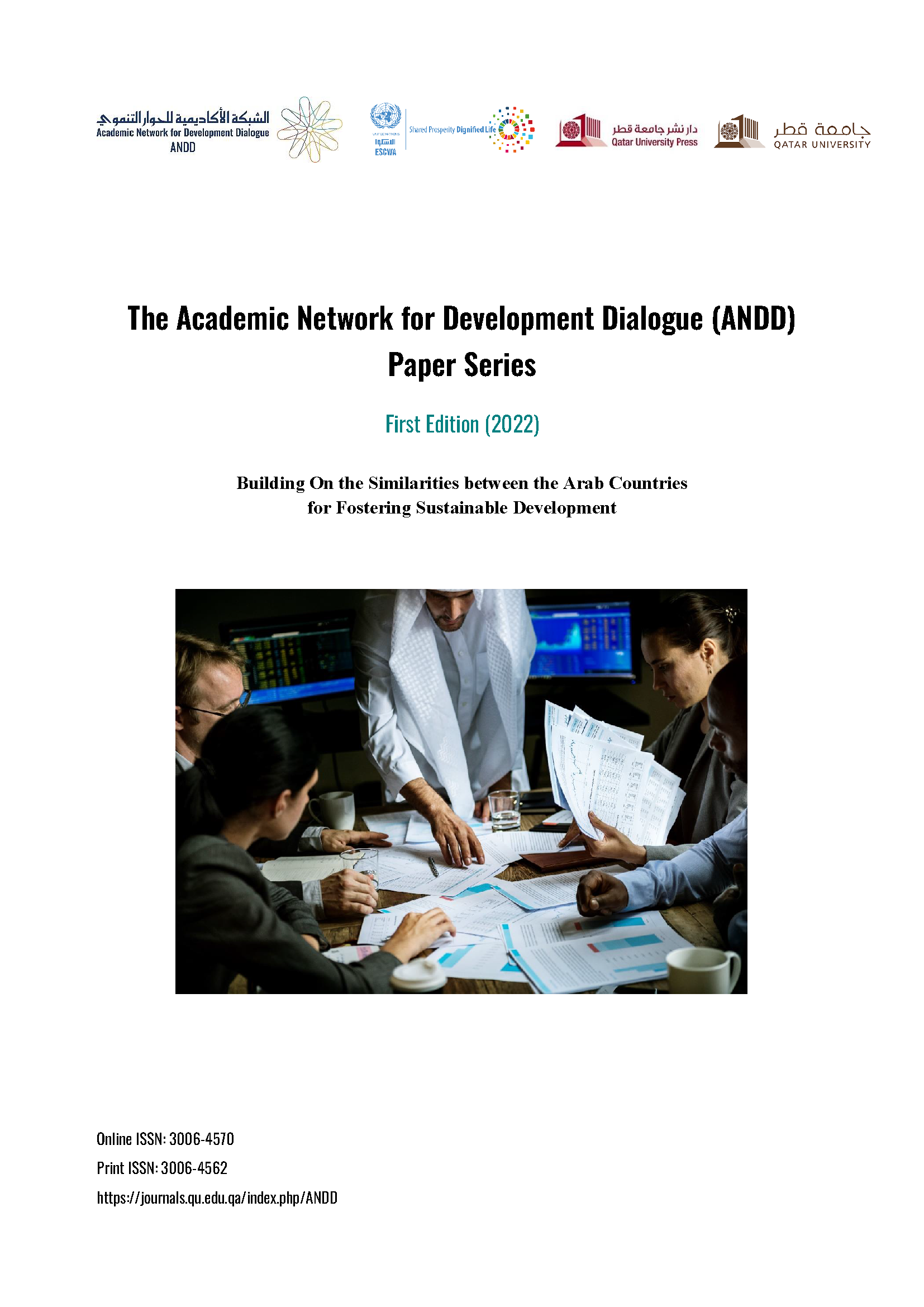Skill Development to Maximize the Benefits of Integration into Global Value Chains
Abstract
Goods that were previously manufactured within a single country are now fragmented and dispersed across global production networks. As a result, countries are no longer required to develop complete industries solely for export purposes. Instead, companies can achieve access to global markets by concentrating on particular products or tasks within the value chain. At present, the sharing of components is commonplace, and numerous regions in the developing world are deeply integrated into global value chains.
It is undeniable that countries engage in this type of activity with several national objectives, and one of the most significant is undoubtedly the enhancement of employment opportunities. In this context, workers in developing countries, including Arab nations, frequently find themselves occupying lower-skilled positions within value chains. This situation arises from a vicious cycle encompassing insufficient education, limited training, jobs with low productivity, and subsequently, low wages. Hence, the issue lies not primarily in the scarcity of employment opportunities, but rather in the deficiency of skills necessary for value creation. To fully capitalize on the advantages of job integration, Arab countries must elevate themselves to a level where they become crucial contributors to global trade based on value chains. However, achieving this ambition presents formidable challenges of significant complexity. Among these challenges, economic underdevelopment, a substantial scientific and technological gap, and the failure of educational systems to adapt to labor market transformations emerge as the most prominent obstacles.
The study concluded that the issue of integration in value chains is based on an important element to enable countries to maximize their benefits from global trade, which is to provide employees with the required skills such proficiency in technology, problem-solving, communication, critical thinking, and a proactive attitude towards learning. By fostering this diverse skill set and others, a country can achieve greater specialization in international production, surpassing other nations both quantitatively and qualitatively within the production chain.
##plugins.themes.bootstrap3.article.details##
IndustrialisationValue chainSkillsEmploymentProductivity
• Cedefop (2021). Review and renewal of qualifications: towards methodologies for analysing and comparing learning outcomes. Luxembourg: Publications Office of the European Union. Cedefop research paper; No 82 Retrieved on 14/09/2022 from http://data.europa.eu/doi/10.2801/615021
• Organisation de coopération et de développement économiques. (2017). OCDE. Retrieved on 15/10/2022 from https://www.oecd ilibrary.org/docserver/8eeb2756 en.pdf?expires=1657483627&id=id&accname=guest&checksum=EEF7D3644EE96C4D11BE0FEF3AA29392
• Organisation de coopération et de développement économiques. (2022, february). Trade in Value added: Saoudi Arabia, Retrieved on 25/10/2022 from https://web-archive.oecd.org/2022-06-03/633572-CN2021_SAU.pdf
• OECD. (2019). OECD Future of Education and Skills 2030, Conceptual learning framework: SKILLS FOR 2030. Retrieved on 25/10/2022 from https://www.oecd.org/education/2030 project/teaching and learning/learning/skills/Skills_for_2030_concept_note.pdf
• Qiang, C., Liu, Y., & Steenbergen, V. (2021). An Investment Perspective on Global Value Chains. Washington, DC: World Bank. Retrieved on 30/10/2022 from https://www.ceintelligence.com/files/documents/Global%20Value%20Chains.pdf
• Sammoud, I., & Dhaoui, S. (2019). The Tunisian Integration into Global Value Chains The role of offshore regime & FDI, EMNES Working Paper No 21. Retrieved on 30/10/2022 from http://www.itceq.tn/files/climat-des-affaires-competitivite/emnes-the-tunisian-integration-into-global-value-chains.pdf
• Samoud, I. (2017). Chaines de valeur et intégration de la Tunisie dans l’économie mondiale. Document de travail: Notes et analyses de l’ITCEQ N 50. tunisie: nstitut Tunisien de la Compétitivité et des Etudes Quantitatives. Retrieved on 10/10/2022 from http://www.itceq.tn/files/climat-des-affaires-competitivite/chaine-des-valeurs-et-integration-de-la-tunisie.pdf
• Sanghi, S., & Srija, A. (2019). National portal of india. (C. o. Industry, Éd.). Retrieved on 15/09/2022, from: https://www.niti.gov.in/sites/default/files/2019-01/Skill%20Development%20and%20Productivity%20of%20the%20Workforce.pdf
• Trainingexpress. (2020). Récupéré sur trainingexpress: Retrieved on 20/09/2022 from https://www.trainingexpress.org.uk/critical-thinking-skills-problem-solving
• World Bank Group. (2021). Building Capacity to evaluate value chain development for job creation: a case study from tunisia. jobs notes (issue no 14). Retrieved on 15/09/2022 from https://documents1.worldbank.org/curated/en/162631625034382998/pdf/Building-Capacity-to-Evaluate-Value-Chain-Development-for-Job-Creation-A-Case-Study-from-Tunisia.pdf
• Zenasni, M., & Jaafari, I. (2021). Participation du Maroc aux Chaînes de Valeur Mondiales et Implications sur le Commerce Extérieur. International Journal of Accounting Management and Economics, Finance, Auditing, 2(1), 371-373. Retrieved on 20/09/2022 from: https://www.ijafame.org/index.php/ijafame/article/download/175/158/


